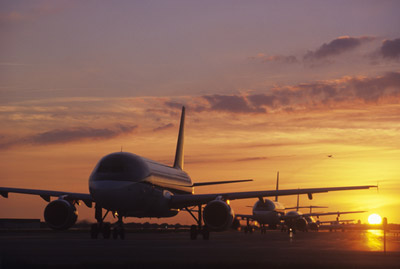Airlines can meet climate goals without cutting corners says WWF
Posted: 7 June 2016 | Katie Sadler, Digital Content Producer, International Airport Review | No comments yet
WWF is calling on the industry to commit to high quality carbon credits and sustainable alternative fuels in order to meet their climate goals.


New research, commissioned by Charity WWF-UK, states there is no need for airlines to use any measures with poor performance on emissions or risks to sustainable development.
This autumn the UN International Civil Aviation Organization (ICAO) will decide in on key features of a global market-based measure (MBM) to cap CO2 emissions from international flights at 2020 levels. One key issue in ICAO is the sustainability of the measures to be credited under the scheme. WWF-UK commissioned the Stockholm Environment Institute to look into supply and sustainability of carbon credits and alternative fuels for aviation.
Airlines meeting climate targets
The research found that there could be enough sustainable biofuel and high quality credits to satisfy up to 73 percent of ICAO’s higher demand forecast for emissions reductions (4.5 Gt CO2e) or 100 percent of its lower demand forecast (3.3 Gt CO2e). This includes 0.1-0.3 Gt of reductions from sustainable biofuels, and up to 3.0 Gt from high quality carbon credits that support sustainable development. Any shortfall in emissions reductions could be met either through greater action on efficiency, or from carbon project types where certification is essential to ensure that the promised emissions reductions are achieved, and/or any sustainable development risks are avoided.
Join our free webinar: Revolutionising India’s travel experience through the Digi Yatra biometric programme.
Air travel is booming, and airports worldwide need to move passengers faster and more efficiently. Join the Digi Yatra Foundation and IDEMIA to discover how this groundbreaking initiative has already enabled over 60 million seamless domestic journeys using biometric identity management.
Date: 16 Dec | Time: 09:00 GMT
rEGISTER NOW TO SECURE YOUR SPOT
Can’t attend live? No worries – register to receive the recording post-event.
WWF call for action…
WWF is now calling for ICAO to send a clear signal in its Assembly Resolution that the MBM will only recognise carbon credits and alternative fuels that achieve real emissions reductions and promote sustainable development, and to finalise detailed sustainability rules as soon as possible.
“Airlines should commit to using only high-quality carbon credits and sustainable alternative fuels”
WWF-UK CEO David Nussbaum said: “As the world unites to fight climate change, the aviation industry has a responsibility to contribute its fair share of the effort. To future-proof themselves and safeguard their brand reputation, airlines should commit to using only high-quality carbon credits and sustainable alternative fuels that avoid damaging side effects on emissions or sustainable development.
“ICAO must make it clear that carbon projects in the fossil fuel sector and conventional crop-based biofuels are not the answer, and should finalise binding sustainability criteria for both credits and fuels as soon as possible after the 2016 Assembly.”
ICAO’s 191 Member States will decide on the MBM proposals at its next Assembly in September/October 2016. The MBM should come into force in 2020.
The full WWF report entitled ‘Greener Skies?’ can be downloaded here.
Join our free webinar: Revolutionising India’s travel experience through the Digi Yatra biometric programme.
Air travel is booming, and airports worldwide need to move passengers faster and more efficiently. Join the Digi Yatra Foundation and IDEMIA to discover how this groundbreaking initiative has already enabled over 60 million seamless domestic journeys using biometric identity management.
Date: 16 Dec | Time: 09:00 GMT
rEGISTER NOW TO SECURE YOUR SPOT
Can’t attend live? No worries – register to receive the recording post-event.

















